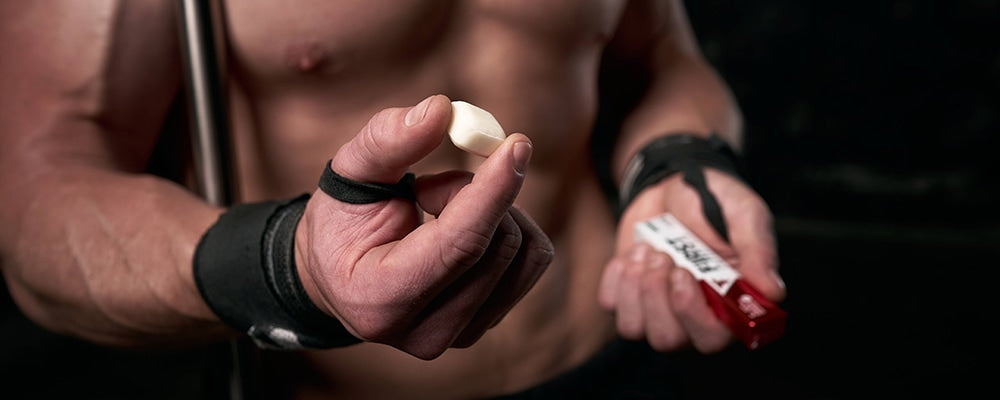In a 2011 study, caffeine supplementation before training resulted in an 11% increase in reps performed on the bench press [2]. Another study found that caffeine intake before training helped to improve cycling performance [3]. Therefore, caffeine can make a positive difference in your strength and cardio training.
In essence, caffeine has 2 main benefits that help improve your training sessions [4]:
Benefit #1: Suppressing tiredness
Benefit #2: Stimulating your nervous system to an extent that you experience a short-term boost in strength performance.
Caffeine Doses: More is not always better
In a recent 2019 study, it was found that the performance benefits of caffeine can be obtained by consuming moderate amounts of caffeine of around 80mg to 100mg [5]. With caffeine intake, more is not always better. You want to ingest enough caffeine to notice performance improvements, but not so much that your central nervous system becomes overstimulated. People sometimes experience negative side effects from overly stimulated pre-workout supplements. It is also common for individuals who consume high-doses of caffeine to experience withdrawal symptoms once they stop taking caffeine. These withdrawal symptoms are typically found when the daily doses exceed 350mg of caffeine [6].
FIRST is dosed at a moderate caffeine amount of 80 mg per gum. This is enough to experience a physical and cognitive performance boost without overly stimulating the central nervous system.
Pre-workouts vs. caffeine
The popularity of pre-workout supplements has been steadily increasing over the past years. Most pre-workout supplements are highly dosed caffeine supplements. Looking at the ingredients of popular pre-workout supplements, we see that caffeine is the most prominent ingredient [7]. While alternative pre-workout ingredients like beta-alanine and L-Citrulline may have slight performance benefits for endurance performance, the research for these ingredients is less consistent than the research on caffeine. For instance, the popular pre-workout ingredient beta-alanine has been suggested to positively impact long-term endurance performance. However, for high-intensity resistance training, beta-alanine has no beneficial performance effects [8]. Caffeine, on the other hand, benefits both cardiovascular and strength performance. Therefore, if you are looking for a simple and effective supplement to use for your general sports activities, caffeine is a good option.
Rather than getting a pre-workout supplement filled with tons of alternative (and often ineffective) ingredients, it makes sense to use a caffeine supplement to boost your training activities instead. You know exactly what you are putting into your body and there is long-term-research backing the safety and efficacy of caffeine ingestion [9]. Pre-workout supplements, on the other hand, are less researched and often use larger-than-recommended doses of ingredients such as caffeine.
FIRST offers a practical solution for your pre-workout needs with a gum that contains a rapidly absorbing 80mg caffeine. While drinking a cup of coffee would also provide a good amount of caffeine, the caffeine in coffee takes 30 to 45 minutes to be absorbed whereas the caffeine in FIRST provides more rapid caffeine absorption.
![]()
Caffeine: Especially beneficial on leg days
We know caffeine has beneficial performance effects. But what's interesting is that caffeine may provide particularly great benefits when taken just before leg day. In a 2017 study, it was found that caffeine ingestion before training showed more improvement in squat performance than in bench press performance [10].
Caffeine is mainly beneficial for lifting weights as it reduces your perceived effort and enhances fatigue tolerance. This is likely more beneficial during lower body workouts since they tend to be more taxing overall. As an example, a heavy squat or deadlift is *generally* more fatiguing than a lat pulldown or bench press. Therefore, try consuming caffeine before your leg workout and you might notice your squats and deadlifts performance go up.
Written by Mounir Azegra from I Wanna Burn Fat

